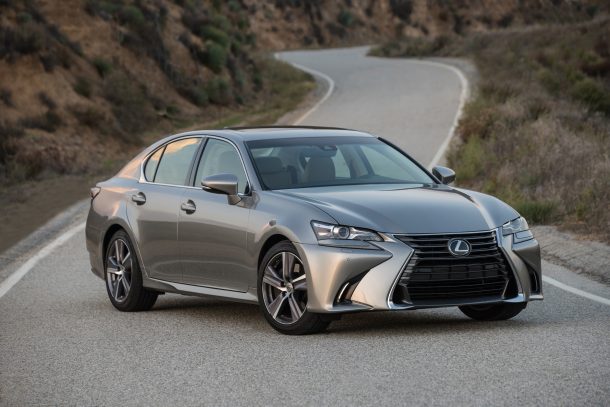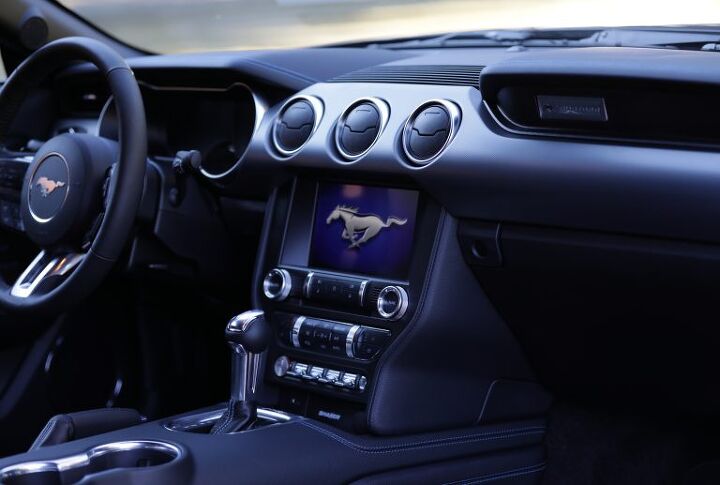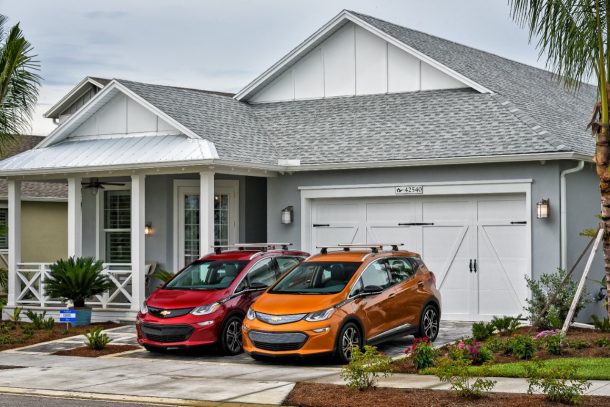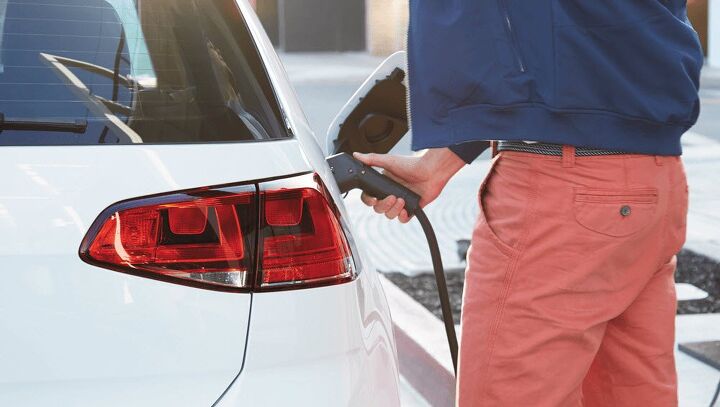#Surveys
Self-Driving Cars Still Not Scratching Public in the Right Places
Every few months, the American Automobile Association gives us an update on the public’s feelings toward autonomous vehicles. Its surveys continue to place the number of individuals made uncomfortable by the idea of riding in a self-driving car at around 3 in 4.
While the ratio did come down slightly in 2017, high-profile fatalities involving autonomous (or Autopilot-enabled) vehicles in Florida, California, and Arizona ultimately took the number of fearful motorists back up to 78 percent by the start of 2018. For 2019, AAA said 71 percent of survey respondents still had serious trepidation, with only 19 percent claiming they’d even consider putting a loved one into a self-driving vehicle.
Americans Suffer in Consumer Reports' 2018 Brand Reliability Rankings
Consumer Reports has released its reliability rankings for automotive brands. The results, based on responses from half million of its readers, are about what you’d expect, with a few exceptions. Normally, reliability rankings don’t change all that much per annum. However, this year’s tally saw some surprising slippage from domestic brands that had performed rather well over the past few years.
The biggest loser was Buick, which fell 11 spots in 2018. CR attributed it to lackluster performance from the redesigned Enclave. Owners cited repeated issues with its new nine-speed transmission and claimed the rest of the brand’s fleet was middling at best. Buick now occupies 19th place, or slightly below average. On the flip side of things, Mazda shot up 9 spots to occupy a comfy position in 3rd place overall. While minor HVAC issues continue to plight the CX-3, the outlet suggested that the rest of its lineup has gotten its act together.
These Are the Cars With the Best Infotainment Systems, According to J.D. Power
J.D. Power and Associates is supremely interested in multimedia systems these days. In fact, in now incorporates audio, communication, entertainment, and navigation (ACEN) into its initial quality study. If an automaker wants one of J.D. Power’s tombstone-shaped awards, it now has to ensure its multimedia equipment isn’t vexing to consumers. Unfortunately, ACEN has proven the most problematic category for new vehicle owners since its addition to the annual survey three years ago.
The research and marketing firm recently decided to break out its ACEN scores to see which vehicles had the best infotainment systems. However, in this instance, what constitutes superior hardware is simply a lack of customer complaints. For J.D. Power, multimedia system quality is determined by the number of problems experienced per 100 vehicles over the first 90 days of ownership.
Since potential problems include everything from technical failures and overall features to how well the system was explained by the dealer and plain general satisfaction, decoding what makes a particular system truly bad is difficult. But a lower frequency of complains always means a better product. Which models shined the brightest?
Public Becoming More Apprehensive About Robotic Cars, Here's Our Best Guess as to Why
A little knowledge is a dangerous thing. Despite the public having become more aware of autonomous vehicles over the last several years, acceptance of the technology appears to be at an all-time low.
According to a recently published survey from Cox Automotive, general knowledge of self-driving cars has grown over the last two years by around 20 percent to 78 percent of a sample audience. However 68 percent of those respondents also felt the technology was potentially unsafe, which represents a nearly 20 percent increase within the same timeframe.
Likewise, general apprehension grew alongside the level of driving autonomy with complete computerized control being the scariest and 84 percent of the sample saying human drivers should always have the ability to take over when they wanted. The public appears to be turning against self-driving vehicles and automakers are going to need to figure out why because these findings are not an isolated incident.
You'll Never Guess Which Car Shoppers Distrust Chinese Vehicles the Most
Nah, that’s completely false. You know exactly which car buyers would turn up their noses at the prospect of bringing home a brand new Geely or GAC. (Aren’t these brand names inspiring?)
After becoming familiar names in Europe, new tariffs have made the imminent influx of Chinese-branded vehicles into the U.S. less than certain. Suddenly, the 2018 Detroit auto show, with its big display of shiny new GACs (including a luxurious minivan with La-Z-Boy-like rear seats), seems so long ago.
But pretend for a second that the new tariffs don’t exist, and that Chinese automakers are poised to open up American showrooms tomorrow. Who’s likely to consider one? Who isn’t? A recent study will almost certainly not surprise you.
Study Claims Car Shoppers Don't Care About Swelling Fuel Prices
Average fuel prices in the United States managed to triple between the years of 1999 and and 2012. While we’ve been fortunate enough to enjoy relatively low prices at the pump over the last few years, analysts predict the current spike will continue through the summer.
However, a recent study from Kelley Blue Book suggests most new-vehicle buyers don’t give a flip about it, with consumers claiming the price surge won’t influence their vehicle purchasing decisions in the slightest.
The assumption that the cost of gas will stabilize in the fall could play a factor for some, but many respondents say the price per gallon would have to reach $4 before they became rattled enough to consider swapping to a more economical vehicle.
In Wake of Crashes, Public Confidence in Self-driving Cars Pulls a U-Turn
Following a Wild West-like expansion in autonomous vehicle testing, coupled with years of rosy predictions from automakers and Silicon Valley types, the public seemed ready to embrace self-driving cars with open arms.
Opinion polls showed significant distrust in the technology, but least among young adults, the idea of self-driving cars remained a popular one. That’s changed, apparently.
Are 20 Percent of Americans Really Planning on Buying an Electric Car?
If we’re placing bets, this author’s money lands firmly on “no.” And I do it with the same level of conviction as betting on Boston when the Bruins play either Toronto or Ottawa. Choke artists, those guys.
So, where does this 20 percent figure come from, you ask? From adult Americans — 1,003 of them — who responded to a survey conducted by the American Automobile Association. AAA published a study Tuesday showing two in ten Americans are “likely” to buy an electric car as their next vehicle.
Does that sound right to you?
Shocking? Many Buyers Aren't Quite Sure What a Hybrid Car Is
The first mass-market hybrid in the Western World, the Honda Insight, debuted while we were still worrying whether Y2K would lead us back into the Stone Age. Some days, I wonder whether we’d be better off if it had.
Regardless of my personal feelings about humanity and societal progression, we’ve had nearly two decades to familiarize ourselves with the gas-electric powertrain, but apparently not everyone got the message. A recent survey of 1,000 drivers shows there’s still plenty of confusion over what a hybrid car is actually capable of.
Auto Executives Secretly Believe Battery-electric Cars Aren't the Future
While fuel-cell technology is progressing in places like California and Japan, the rest of the world shrugged it off after the initial hype subsided. Since then, practically every automaker in existence has invested in battery technology and electrification. However, according to a recent survey, most auto executives secretly do not believe batteries will be the real breakthrough in electric mobility. Dealers feel the same way, but they’ve been less cagey on the matter.
Uh, what? Then why is everyone and their mother talking up plug-in cars and sweeping the fuel cell under the carpet?
Well, in addition to hydrogen having an abysmal fueling infrastructure almost everywhere, governments simply aren’t pushing it like battery power. Incentivizing plug-in cars has gone a long way to bolster the segment’s popularity and, with China mandating that a growing portion of all auto sales be battery-related, companies have to lean into what they already have. That said, many executives still seem to feel that hydrogen-powered cars have more to give the industry.
Let’s not get ahead of ourselves. Its time to talk about why auto dealers are so unhappy about the electric revolution.
Captain Obvious Finally Arrives: Ride Hailing Actually Congests City Traffic
A recurring theme among ride-hailing executives from the likes of Lyft and Uber is that their platforms will help reduce congestion in the world’s most populous cities. However, anyone actually living in these places will tell you it doesn’t appear to be working. Cities like New York were already clogged with taxi cabs but, instead of seeing all of these drivers buy personal vehicles to enlist as independent contractors for ride-hailing firms, Uber and Lyft brought in new drivers, more vehicles, and fresh competition.
Worse yet, ride-sharing alternatives like Uber Pool have moved people away from buses and trains and placed them in the backseats of cars — further compounding the problem. It turns out city dwellers who already owned an automobile didn’t suddenly decide to get rid of it, and those who were heavily invested in mass transit discovered an affordable car-based alternative.
Buick and Lexus Predictably Top J.D. Power's Dependability Survey
J.D. Power and Associates continued their now routine praise of Buick, Lexus, and Porsche by giving the brands top honors in the company’s latest annual dependability study.
The survey, which assesses the number of reported problems per 100 vehicles during the first three years of vehicle ownership, resulted in Lexus achieving top marks with only 99 claimed issues. Toyota’s premium brand (which has won seven years running) was followed closely by Porsche with 100 reported problems, whereas Buick was the “mass market” brand with the fewest faults at 116.
Issues pertaining to audio, communications, navigation, or entertainment systems continued to yield the highest number of complaints from consumers in 2018. However, the gap between luxury and mainstream brands appears to be closing, as most of last year’s top performers lost a little ground to mid-level mainstream competitors. Infiniti saw the most improvement overall, coming from the bottom of the pack in 2017 to take 4th overall this year. It was followed by Kia, with 122 problems per 100 vehicles — proving that premium levels of quality are not exclusive to premium brands.
Does the United States Have the World's Best Drivers? Sure, Just Ask Us
If you ask any terrible motorist how skilled they are behind the wheel, the response is often the same. “Oh, I’m a great driver,” they’ll say with a self-assured smile. Meanwhile, you’re left holding back a series of screaming rants that involve first-hand accounts of why their claim couldn’t possibly be accurate. But what about the rest of the country?
As it turns out, the general consensus in the United States is that most people think they’re a fine driver. But things get a little more complicated when you drive into people’s habits behind the wheel. In a recent survey, Driving-tests.org found that 60.8 percent of surveyed Americans thought they were an above-average driver. While that percentage can only be an impossibility, some of the claimed behaviors were slightly better than a comparative sample of international respondents.
Which Brands Fared Best in 2017's Consumer Reports' Reliability Survey?
Consumer advice is one way informed shoppers like to make a decision, and few buying choices are bigger than your next car. Every year, Consumer Reports surveys its subscribers to see how they’re getting on with their personal vehicles. While the metrics may have changed over the years, its annual reliability report is one people and automakers pay particularly close attention to.
However, this year, some automakers were paying closer attention than others. Tesla, irritated that CR was so hard on the Model X — while predicting the Model 3 would possess “average reliability” — fired back at the publication with a press release calling shenanigans. “Time and time again, our own data shows that Consumer Reports‘ automotive reporting is consistently inaccurate and misleading to consumers,” the automaker wrote in a release.
While Consumer Reports exists as a nonprofit organization providing consumer advice, Tesla has accused it of making the electric automotive brand a target to bolster attention. Whether or not that’s true is debatable, but it did use predictive reasoning to assess the Model 3’s probable reliability — rather than data collected from testing and customer surveys.
Doing the Math: Over a Quarter of New Cars Do Not Come With a Spare Tire
It always happens when you aren’t expecting it. You’re cruising along in your automobile, listening to the radio and making wonderful time. Then, all of a sudden, the steering feels odd — there is an overabundance of vibration and the car keeps pulling to one side. You’ve got a flat tire.
Annoying, to be sure. Fortunately, this isn’t your first rodeo and you pull off to swap the punctured rubber with a spare. However, if you own a brand new car, you might be disappointed to learn there’s decent chance it doesn’t even have one. According to a recent study conducted by the American Automobile Association, 28 percent of 2017 model-year vehicles aren’t equipped with spare tires — leaving you breaking out the compressed air and sealant or calling for a tow truck.






























Recent Comments